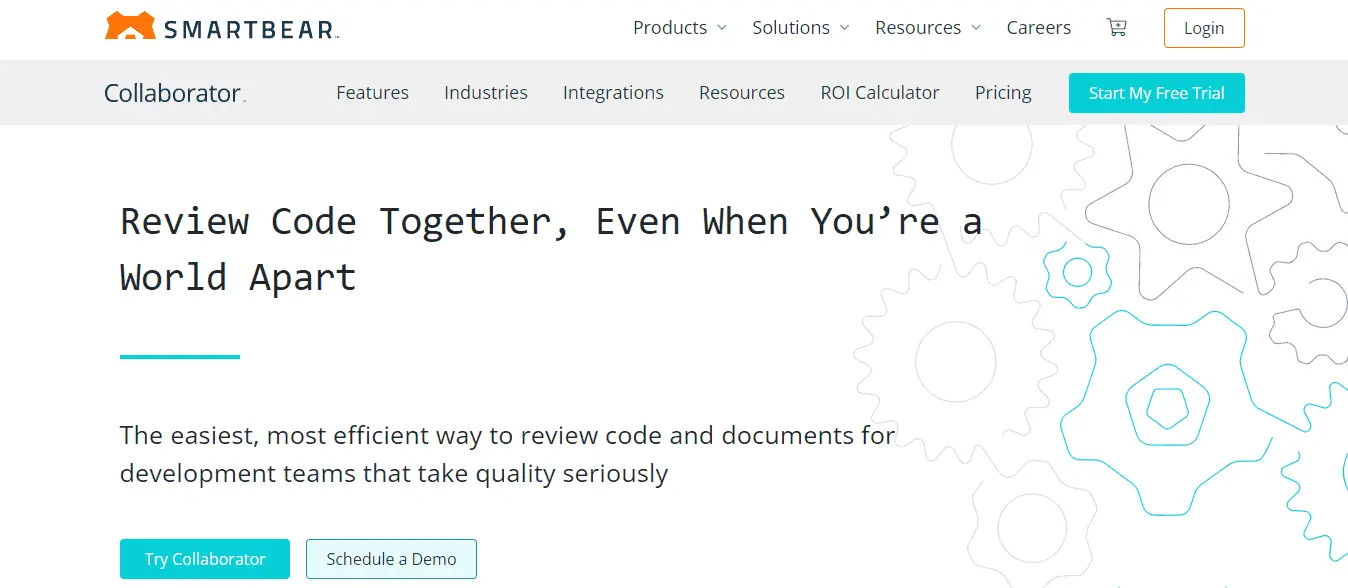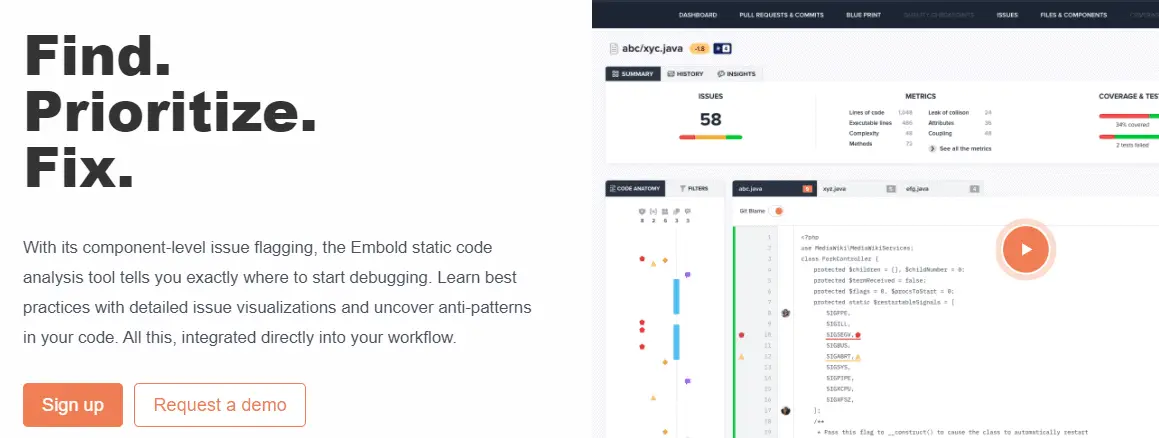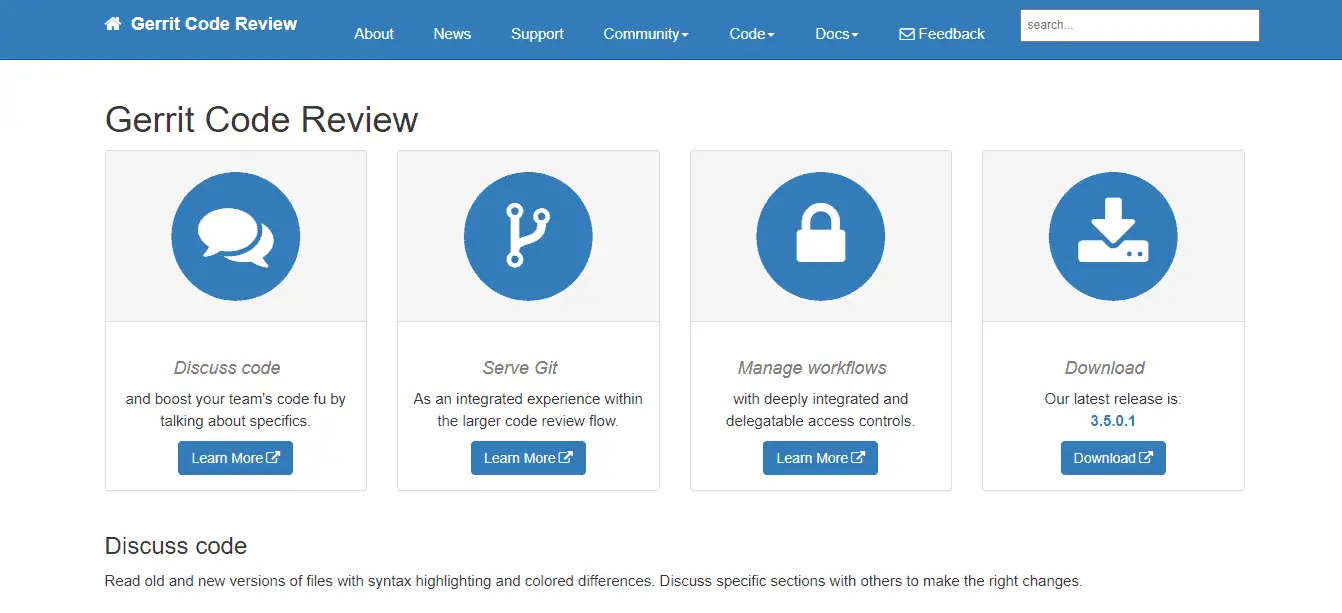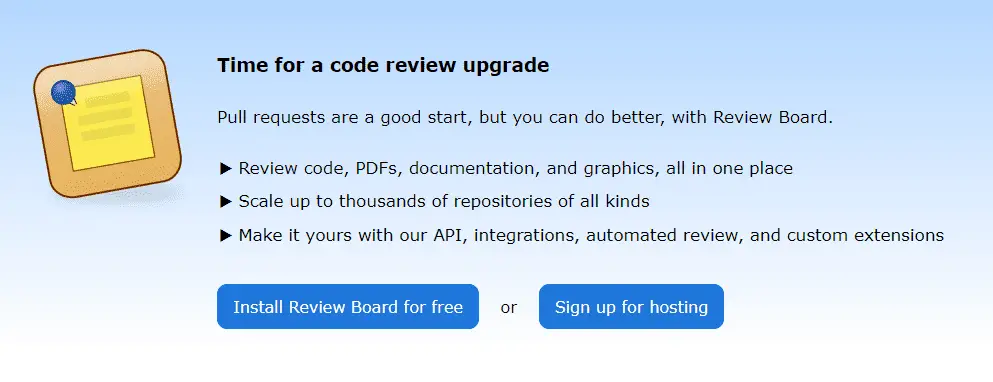Are you looking for code review tools? Source code testing is what code review is all about. It’s typically used to find bugs early in the software development process. This code review increases the software’s quality and lowers program code faults.
Moreover, code review tools automate the review process, reducing the time required for code review. Formal examinations and passing are the two methods for completing the examination.
Code review tools help build websites. Websites that all need hosting. WPMU DEV’s all-in-one WordPress platform combines multiple tools and licenses into one – allowing you to save money and streamline your development workflow. Get 20% off any of their plans.
In this article, you will find out the best code review tools for developers currently available online by the time you hire javascript developer for your business.
1. Collaborator

For developers, one of the most excellent code review tools is Collaborator. With this tool, you can examine code changes, find faults, and add comments to specific lines. To ensure that reviews are done on time, create review rules and send out automatic notifications.
In addition, Collaborator’s custom preview templates are one-of-a-kind. To personalize peer reviews to your team’s optimum workflow, create custom fields, checklists, and participant groups. 11 various SCMs, as well as IDEs like Eclipse and Visual Studio, are all easily integrated.
You can create personalized evaluation reports to drive process improvement and make auditing easier. Teams can swiftly react to requirements, design modifications, and compliance responsibilities by conducting document reviews in the same tool.
2. Embold

Embold is a software analytics platform that examines source code from four perspectives: code issues, design issues, metrics, and duplication. It detects problems with stability, robustness, security, and long-term viability. Also, it supports over ten languages and interacts with Github, Bitbucket, Azure, and Gita. IntelliJ IDEA and Eclipse both have free add-ons.
Furthermore, Embold is a software analytics program that examines authorization code from four perspectives: code issues, design issues, metrics, and duplication. It detects problems with stability, robustness, security, and long-term viability. Also, it supports over ten languages and interacts with Github, Bitbucket, Azure, and Gita. Plus, IntelliJ IDEA and Eclipse both have free add-ons.
3. CodeScene

Based on how the organization handles code, CodeScene detects and prioritizes technical debt. CodeScene works as an extra team member in your delivery pipeline, anticipating delivery risks and providing a contextual gateway to quality. The tool can also be integrated with GitHub, BitBucket, GitLab, or the Jenkins CodeScene plugin.
When withdrawing requests, you can automatically review comments, and quality CI / CD doors are available. Also, the workflow has a specific goal in mind for improvement planning, technical debt management, and code quality assurance. It’s compatible with any Git hosting service. It syncs with Jira to keep track of delivery performance trends, and both a local and a hosted version of CodeScene are available.
4. Gerrit

Gerrit is a free web code review platform that allows software engineers to see their code in a browser and accept or reject modifications. Gito, a distributed version control system, may also be connected with Gerrit.
This Git repository management tool allows project members to take advantage of a simplified code review process and a highly customizable hierarchy. Gerrit is also used to discuss and improve the proper modifications needed in various technical sections of code.
5. Rhodecode

Rhodecode is a safeguarded and enterprise-ready open source management application. Rhodecode is a Git, Subversion, and Mercurial integration tool. Team communication, repository management, security, and code authentication are the core characteristics of Rhodecode.
Moreover, Community Edition (CE), which is free and open, and Enterprise Edition (EE), licensed per user, are the two editions of Rhodecode. Rhodecode speeds up workflows by automating them.
6. Review Board

Review Board is a free and open-source online collaborative tool for reviewing code and documents in open source projects and enterprises. Using the code review board can help you save money and time. As a result, the time saved can be used better by developing unique software.
ClearCase, CVS, Perforce, plastic, and other systems can be connected with the dashboard. The syntax is highlighted when using the Review Board tool to review code, making it easier and quicker to read. Also, pre-takeover and post-lecture reviews are encouraged by the Audit Committee.
Conclusion
These are some of the best code review tools for developers you can find online. When it comes to increasing your organization’s efficiency, the code review process is critical. Using the correct code review tool, in particular, is what helps you eliminate overlap in your development process.

